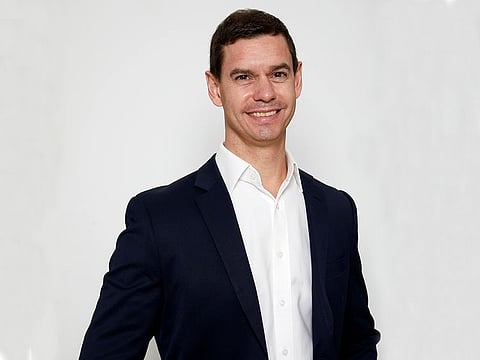UAE's Udrive is on a mission to get Saudis take to car share
Udrive CEO Nicholas Watson reckons now is the time to find that out

Dubai: Everyone knows that Saudis love their cars, SUVs and midsize trucks – and cannot think of not owning their favorite set of wheels. Looking at it another way, the Kingdom’s one difficult market to offer car share or subscription services.
That’s not going to daunt Nicholas Watson, co-founder and CEO of Udrive, the Dubai-based portal. He’s just made an entry into Saudi Arabia, hoping to drive enough interest among prospective users in the initial phase itself. Especially among a digitally savvy generation willing to give a thought beyond outright car ownership.
Watson reckons this ‘generational shift’ will be enough to carry Udrive on its mission in the big new market.
In your launch announcement, you mention the heavy preference for vehicle ownership in Saudi Arabia. Will this ever change, even if you start off targeting the younger demographic?
We see ownership changing globally to user-ship - the same is happening in KSA. The average percentage ratio of car-sharing cars to passenger cars in Riyadh is 0.02 per cent compared to a global average of 0.5 per cent in major cities, presenting a significant opportunity.
There is a growing passenger car market among a population where over half are under 25, inclined towards user-ship. What we are excited about is that this is a generational shift. With more financing facilities such as leasing being made more and more to consumers than corporations, our organic customer base keeps growing.
Additionally, many new 'transient' people are coming to KSA for business trips and short-term projects. So this also helps, as they need vehicles to get to places but don't need to own one.
In Saudi Arabia, are you providing more options with SUVs and luxury models? Would budget models be in such demand in a market like the Kingdom?
We currently have a select group of SUVs in our fleet, ranging from MG Motor to Mitsubishi. We do have plans to bring luxury vehicles as the global stock of vehicles becomes more readily available. For now, the growth and access to cars are in the economic mid-range vehicles. We aim to boost the fleet to 1,500 cars within a year of operation.
Did you tie up with dealers or existing fleet operators?
Yes, we have partnered with major leasing partners including Sixt, Lumi and Auto World, amongst others. We are asset-lite and focus on having partners who can support our big growth ambitions. This allows us to access more inventory from our leasing partners.
Any funding rounds for the Saudi push? Are your UAE operations near breakeven?
We have been raising funds at the group level for two key areas, growth into KSA and technology and product innovation. We secured our Series A at the end of 2021 and we have an additional round coming very soon to support the GCC expansion.
In the UAE, we are operating very near breakeven. Most startups dream of positive unit economics and positive operating gross profit. We are proud to say we are achieving both and are working towards the net profitability of our cities. The next 12 months are an exciting time for our business.
How much have you raised since the launch of operations?
We have raised approximately $10 million to date, including the funding raised to support operations through the pandemic lockdown. The business is far stronger now because of it.
We have some very supportive investors, including Dubai SME Authority through Dubai Cultiv8, Oman Holding International, who know the car leasing market very well, and some well-known angel investors who have built unicorn startups in the region themselves.
Did the pandemic crater your growth ambitions and delay your Saudi entry?
Unfortunately, it did. As you can imagine, going from millions of dirhams in revenue each month to almost zero overnight was a big shock. However, we were very strategic in the decisions we made to survive and because of those decisions, we were able to make it back to full operations.
While the lockdown killed our revenue, it actually spurred our motivation to focus on unit economics and a route to profitability rather than just chase revenue growth.
We have tripled our fleet since the lockdowns and are geared for triple-digit-percentage growth and accelerated profitability in the region over the next 12 months. Most startups never make it to positive unit economics, so we are very happy to have achieved this very quickly after the lockdowns.
We were due to launch in Saudi around September 2020. But with the pandemic still ongoing globally, our focus on changing the business financially, we kept pushing it until we were ready to scale a more favourable financial model.
Which market would be the next?
We are launching in more cities in the GCC during 2023. We are also in discussions with strategic investors on how our technology and operational experience can be applied in other markets.



